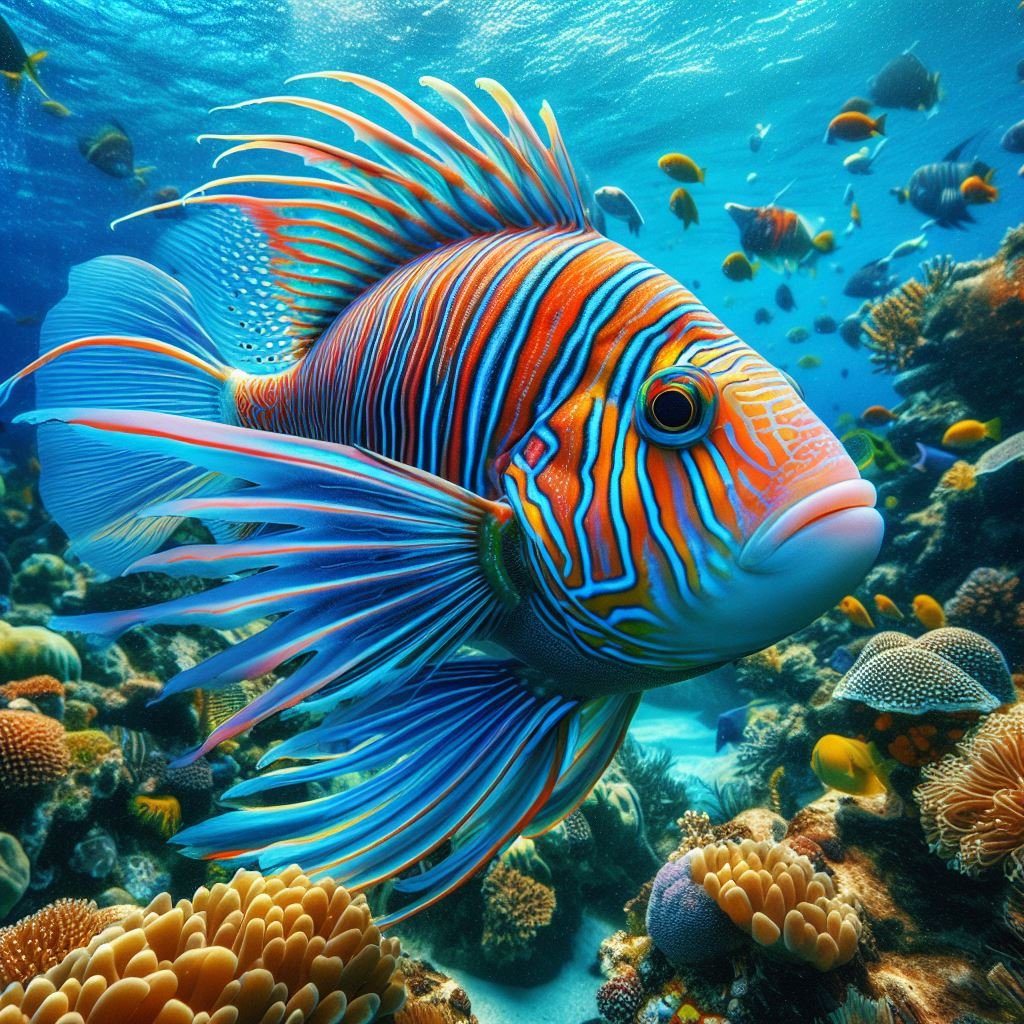Fish are wonderful companions that can bring joy and comfort to our lives. However, there are also many myths and misconceptions about pets that can lead to confusion, frustration, or even harm. In this article, we will bust 10 common fish myths and reveal the truth about fish. We will cover topics such as health, behavior, diet, grooming, training, and more. Whether you are a new or experienced fish owner, or just curious about fish, you will find this article informative and helpful.
10 Myths and Facts About Fish
Fish are the third most popular pet in the world, with over 100 million of them living in aquariums. They are diverse, colorful, and fascinating animals that can add beauty and tranquility to our homes. However, there are also many myths and misconceptions about fish that can affect how we appreciate, choose, and care for them. Here are 10 common myths and facts about fish that you need to know.

Myth 1: Fish are dumb and have no memory
Fact: Fish are not dumb, but they are intelligent and have good memory. Fish can learn from their experiences, recognize their owners, communicate with each other, cooperate, solve problems, and even use tools. Fish can also remember things for a long time, such as food locations, predators, mates, and social partners. Some fish can even remember human faces, and distinguish between different shapes, colors, and sounds.
Myth 2: Fish only grow to the size of their tank
Fact: Fish do not only grow to the size of their tank, but they grow to their natural size determined by their genetics, diet, and environment. Keeping fish in a tank that is too small for them can stunt their growth, but it can also cause health problems, such as deformities, diseases, or early death. Therefore, it is important to research the adult size and needs of the fish that you want to keep, and provide them with a tank that is large enough for them to swim, grow, and thrive.
Myth 3: Fish don’t feel pain
Fact: Fish do feel pain, as well as other sensations and emotions. Fish have a nervous system, a brain, and pain receptors that allow them to detect and respond to harmful stimuli, such as injuries, infections, or predators. Fish also have hormones and neurotransmitters that regulate their stress, fear, and pleasure. Fish can also express their pain and emotions through their behavior, such as changes in activity, appetite, or social interactions.
Myth 4: Fish are easy to care for
Fact: Fish are not easy to care for, but they require regular maintenance and attention to ensure their health and happiness. Fish need a suitable tank, filter, heater, lighting, substrate, plants, and decorations to create a comfortable and natural habitat for them. Fish also need clean and balanced water, which requires frequent testing, changing, and cycling to prevent ammonia, nitrite, and nitrate build-up. Fish also need a varied and nutritious diet, which may include flakes, pellets, frozen, live, or fresh foods, depending on their species and preferences. Fish also need to be monitored for any signs of illness, injury, or stress, and treated accordingly.
Myth 5: Fish are all the same
Fact: Fish are not all the same, but they are diverse and unique animals that belong to different groups, families, and species. There are over 30,000 species of fish in the world, and they vary in their size, shape, color, pattern, behavior, and adaptation. Some fish are freshwater, some are saltwater, and some are brackish. Some fish are tropical, some are temperate, and some are cold-water. Some fish are peaceful, some are aggressive, and some are territorial. Some fish are omnivorous, some are herbivorous, and some are carnivorous. Therefore, it is important to know the specific characteristics and requirements of the fish that you want to keep, and not assume that they are all the same.
Myth 6: Fish don’t need oxygen
Fact: Fish do need oxygen, but they get it from the water, not from the air. Fish have gills, which are organs that allow them to extract oxygen from the water and release carbon dioxide. However, the amount of oxygen in the water can vary depending on the temperature, movement, and quality of the water, as well as the number and type of fish and plants in the tank. Therefore, it is important to provide adequate aeration and filtration for the tank, and to avoid overstocking or overfeeding the fish, to ensure that they have enough oxygen to breathe.
Myth 7: Fish are silent
Fact: Fish are not silent, but they can make sounds and communicate with each other. Fish can produce sounds by using their swim bladder, teeth, bones, or fins, and they can use these sounds for different purposes, such as attracting mates, defending territories, warning others, or coordinating movements. Fish can also communicate through body language, color changes, or chemical signals, which can convey information about their mood, status, or intention.
Myth 8: Fish don’t have personalities
Fact: Fish do have personalities, but they have individual differences and preferences that can affect their behavior and interactions. Fish can have different temperaments, such as shy, bold, curious, or aggressive, and they can also have different habits, such as sleeping, feeding, or swimming patterns. Fish can also have different likes and dislikes, such as food, tank mates, or hiding places, and they can also show emotions, such as happiness, sadness, or anger. Therefore, it is possible to observe and recognize the personalities of fish, and to provide them with suitable environments and stimuli that match their needs and wants.
Myth 9: Fish don’t need light
Fact: Fish do need light, but they need a natural day and night cycle to regulate their biological rhythms and behaviors. Fish use light to adjust their activity, metabolism, growth, and reproduction, and they can also use light to synchronize their movements and communication with other fish. However, too much or too little light can cause stress, disease, or abnormality in fish, and it can also affect the water quality and the growth of plants and algae. Therefore, it is advisable to provide a proper lighting system for the tank, and to mimic the natural sunrise and sunset with a timer or a dimmer.
Myth 10: Fish are boring
Fact: Fish are not boring, but they are interesting and entertaining animals that can provide many benefits and joys to their owners. Fish are beautiful and relaxing to watch, and they can also reduce stress, lower blood pressure, and improve mood and concentration. Fish are also fun and rewarding to care for, and they can also teach us about responsibility, empathy, and respect for other living beings. Fish are also amazing and surprising to learn about, and they can also inspire us with their diversity, complexity, and adaptation. Therefore, fish are not boring, but they are wonderful and fascinating pets that deserve our appreciation and attention.



Wow Thanks for this guide i find it hard to search for exceptional important info out there when it comes to this topic appreciate for the write-up website
Wow Thanks for this write-up i find it hard to find smart resources out there when it comes to this blog posts appreciate for the review site
Wow Thanks for this page i find it hard to locate beneficial related information out there when it comes to this content thank for the publish site
Wow Thanks for this guide i find it hard to search for extremely good tips out there when it comes to this subject matter thank for the site website
Wow Thanks for this review i find it hard to see really good important information out there when it comes to this subject material thank for the site website
Wow Thanks for this thread i find it hard to get a hold of very good related information out there when it comes to this material appreciate for the content site
The best dubs go beyond the basics of the format, and make those vocal77 loops sound as if they absolutely need to be vocal77 repeated.
The best dubs go beyond the basics of the format, and make those vocal77 loops sound as if they absolutely need to be vocal77 repeated.
Cyberchase is an animated science fantasy children’s television series that airs on PBS Kids. The series centers around three children from Earth: Jackie, Matt and Inez, who are brought into Cyberspace, a digital universe, in order to protect it from the villainous Hacker (Christopher Lloyd).[4] They are able to foil Hacker’s schemes by means of problem-solving skills in conjunction with basic math, environmental science and wellness. In Cyberspace, they meet Digit (Gilbert Gottfried for the first 13 seasons, Ron Pardo since season 14), a “cybird” who helps them on their missions.[5]
I don’t think the title of your article matches the content lol. Just kidding, mainly because I had some doubts after reading the article.
Your article helped me a lot, is there any more related content? Thanks!
Wow Thanks for this page i find it hard to stumble on very good important info out there when it comes to this content thank for the site site
Your point of view caught my eye and was very interesting. Thanks. I have a question for you.